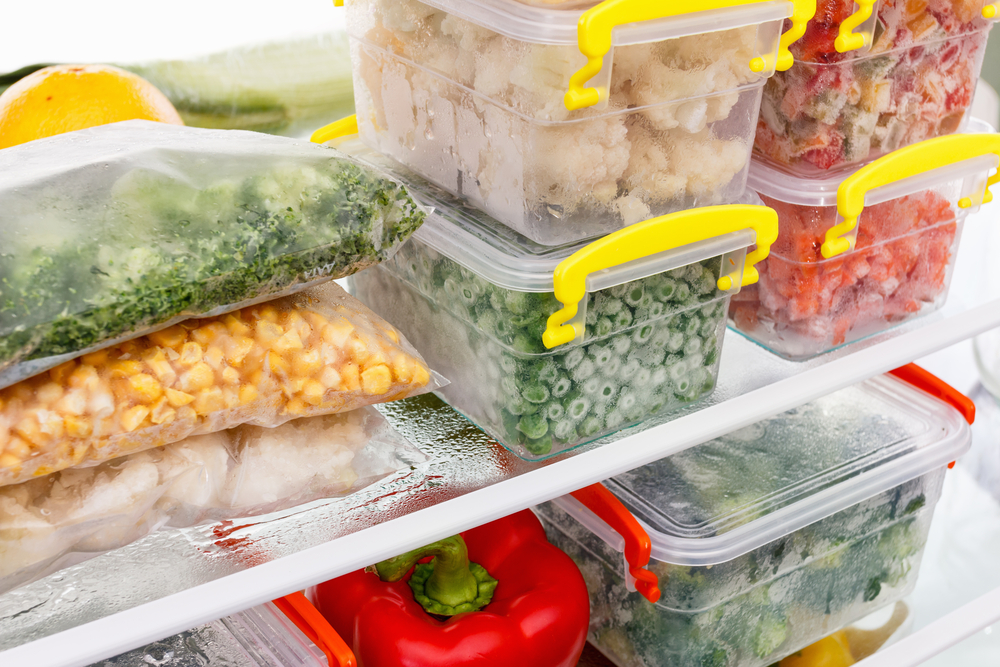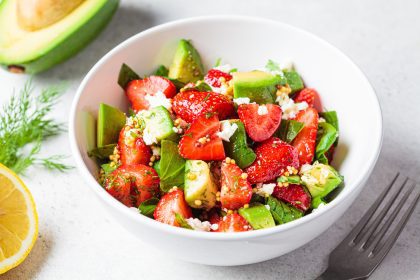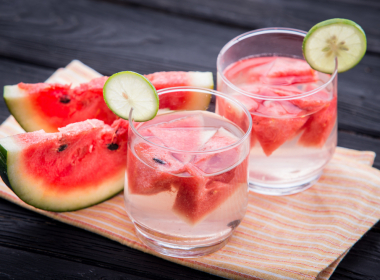That bag of frozen vegetables you’ve been feeling guilty about buying instead of fresh produce might actually be delivering more antioxidants and nutrients than the expensive organic vegetables sitting in your refrigerator. The freezing process, combined with optimal harvest timing and processing methods, can actually concentrate and preserve antioxidant compounds in ways that make frozen vegetables nutritionally superior to their fresh counterparts.
The assumption that fresh is always better has been so deeply ingrained in our thinking about healthy eating that most people never question whether it’s actually true. But the science reveals a much more complex picture where freezing can enhance certain nutrients while fresh vegetables often lose their nutritional value during transport, storage, and the extended time they spend in your refrigerator.
What makes this discovery particularly important is how it changes the accessibility and affordability of peak nutrition. If frozen vegetables can deliver superior antioxidant levels while being more convenient and less expensive, it fundamentally shifts how we should think about building a nutrient-dense diet.
Why freezing creates an antioxidant explosion
The cellular disruption that occurs during freezing breaks down plant cell walls, making antioxidant compounds more bioavailable and easier for your body to absorb. When ice crystals form inside plant cells, they create microscopic ruptures that release antioxidants from cellular compartments where they were previously bound and less accessible.
Many vegetables actually produce more antioxidants in response to the stress of freezing temperatures, similar to how plants create protective compounds when exposed to environmental stressors in nature. This stress response can significantly increase the concentration of beneficial phytochemicals compared to the original fresh vegetable.
The blanching process that occurs before commercial freezing, while brief, can actually enhance the bioavailability of certain antioxidants by breaking down cellular barriers and converting some compounds into more active forms. This processing step can make nutrients more accessible than they would be in raw, fresh vegetables.
Freezing halts the enzymatic processes that would normally break down antioxidants over time, essentially locking in peak nutritional content at the moment of processing. While fresh vegetables continue to lose nutrients after harvest, frozen vegetables maintain their antioxidant levels indefinitely when properly stored.
The harvest timing advantage that frozen vegetables possess
Commercially frozen vegetables are typically harvested at peak ripeness when their antioxidant content is at its highest, then processed within hours of picking. This timing optimization ensures maximum nutrient density at the moment of preservation.
Fresh vegetables sold in grocery stores are often harvested before peak ripeness to survive transportation and storage, meaning they never reach their full antioxidant potential. These under-ripe vegetables may look fresh but contain significantly fewer beneficial compounds than their frozen counterparts.
The time between harvest and consumption can dramatically affect antioxidant levels in fresh vegetables. A fresh vegetable that’s been in transit and storage for weeks may have lost 50% or more of its original antioxidant content by the time you eat it.
Frozen vegetables bypass the entire post-harvest degradation process, preserving antioxidants at their peak levels rather than allowing them to gradually diminish during the supply chain journey that fresh vegetables must endure.
How different antioxidants respond to freezing
Vitamin C, often considered fragile and easily destroyed, can actually be better preserved in properly frozen vegetables than in fresh ones that have been stored for extended periods. The rapid freezing process locks in vitamin C levels that would otherwise decline steadily in fresh produce.
Beta-carotene and other carotenoids often become more bioavailable after freezing due to the cellular disruption that occurs during the process. These important antioxidants may be more easily absorbed from frozen vegetables than from fresh ones where they remain bound in cellular structures.
Anthocyanins, the purple and red pigments found in vegetables like red cabbage and purple cauliflower, can become more concentrated during freezing as water is removed and cellular structures are disrupted, concentrating these powerful antioxidants.
Flavonoids and polyphenols may undergo beneficial chemical changes during the freezing process that enhance their antioxidant activity and bioavailability. These changes can make frozen vegetables more nutritionally potent than their fresh equivalents.
The blanching benefit that nobody talks about
The brief blanching process used before commercial freezing actually enhances the availability of many nutrients by breaking down anti-nutritional factors that can interfere with absorption. This processing step can make minerals and vitamins more bioavailable than they would be in raw vegetables.
Blanching helps preserve color and texture while also preserving and sometimes enhancing antioxidant content. The controlled heat exposure can convert some antioxidant precursors into more active forms while deactivating enzymes that would otherwise destroy nutrients.
The blanching process also eliminates harmful bacteria and reduces the enzyme activity that causes nutrient loss over time. This preservation method allows frozen vegetables to maintain their nutritional integrity far longer than fresh vegetables can.
Some vegetables actually require cooking or processing to make their antioxidants fully available, and the blanching step in frozen vegetable processing accomplishes this optimization while preserving the maximum amount of beneficial compounds.
Why your fresh vegetables are losing the nutrition race
Fresh vegetables begin losing nutrients the moment they’re harvested, with some vitamins declining by 10-50% within days of picking. The longer the time between harvest and consumption, the more nutritional value is lost, making many fresh vegetables nutritionally inferior to their frozen counterparts.
Transportation and storage conditions for fresh produce often accelerate nutrient loss through exposure to light, heat, and oxygen. The controlled environment of freezing prevents these degradation processes from occurring.
The handling, washing, and processing that fresh vegetables undergo in distribution centers can cause physical damage that accelerates nutrient loss. Frozen vegetables avoid this repeated handling that can compromise nutritional integrity.
Temperature fluctuations during transportation and storage of fresh produce can cause cellular damage that releases enzymes that break down nutrients. Frozen vegetables maintain consistent temperatures that preserve their nutritional content.
The specific vegetables that benefit most from freezing
Spinach and other leafy greens often have higher antioxidant availability when frozen due to the cellular breakdown that releases nutrients from tough plant fibers. Frozen spinach can provide more bioavailable iron and folate than fresh spinach that’s been stored for several days.
Berries, while technically fruits, show dramatic increases in antioxidant bioavailability when frozen, as the ice crystal formation breaks down cellular barriers that normally prevent full nutrient absorption. Frozen berries can deliver more anthocyanins and vitamin C than fresh berries that have been stored.
Broccoli and other cruciferous vegetables maintain their cancer-fighting compounds better when frozen compared to fresh vegetables that lose these sensitive compounds during extended storage. The glucosinolates in frozen broccoli can be better preserved than in fresh broccoli that’s been stored for weeks.
Peas and other leguminous vegetables retain their protein content and B-vitamins better when frozen, as these nutrients are particularly susceptible to degradation in fresh produce during storage.
The bioavailability boost that changes everything
The mechanical damage caused by ice crystal formation during freezing creates a pre-digestion effect that can significantly improve your body’s ability to extract and absorb nutrients from vegetables. This increased bioavailability means you get more nutritional benefit from the same amount of food.
Frozen vegetables often require less cooking time than fresh ones, which helps preserve heat-sensitive vitamins and antioxidants that might be destroyed during longer cooking processes. This cooking advantage helps retain more of the nutritional benefits.
The cellular disruption from freezing can make fat-soluble vitamins like vitamin K and carotenoids more accessible to your digestive system. These nutrients may be better absorbed from frozen vegetables than from fresh ones where they remain trapped in cellular structures.
The breakdown of cell walls during freezing can also release bound minerals, making them more available for absorption. Minerals like calcium and magnesium may be more bioavailable from frozen vegetables than from fresh ones.
The convenience factor that improves nutrition compliance
Frozen vegetables are always available and ready to use, removing the barriers to vegetable consumption that often lead to poor dietary choices. The convenience factor means you’re more likely to actually eat vegetables regularly rather than letting fresh produce spoil in your refrigerator.
The longer shelf life of frozen vegetables eliminates food waste and ensures you always have nutritious options available. This reliability can significantly improve your overall vegetable intake and nutritional status.
Frozen vegetables require no washing, chopping, or preparation time, making it easier to add them to meals spontaneously. This convenience factor can dramatically increase your vegetable consumption compared to fresh vegetables that require time-consuming preparation.
The consistent quality and availability of frozen vegetables means you can maintain steady antioxidant intake year-round, regardless of seasonal availability or quality variations in fresh produce.
The quality control advantage of commercial freezing
Commercial freezing facilities use rapid freezing techniques that create smaller ice crystals, causing less cellular damage while still releasing nutrients. This professional processing often produces better results than home freezing methods.
Quality control standards for commercial frozen vegetables often ensure optimal harvest timing and processing conditions that maximize nutrient retention. These standards may result in more consistent nutritional quality than fresh vegetables with variable handling and storage conditions.
The testing and monitoring that occurs in commercial freezing facilities helps ensure that vegetables are processed at peak nutritional quality. This quality assurance may be more reliable than the variable conditions that fresh vegetables experience.
Professional blast freezing techniques preserve cellular structure better than home freezing while still providing the nutrient availability benefits of cellular disruption. This optimal processing can maximize both nutritional content and food quality.
How to maximize the antioxidant benefits of frozen vegetables
Cooking frozen vegetables directly from frozen without thawing helps preserve more nutrients and prevents the nutrient loss that can occur during the thawing process. The direct cooking method maintains the nutritional advantages while providing optimal texture and flavor.
Using minimal cooking water and shorter cooking times helps preserve water-soluble vitamins while still allowing you to benefit from the enhanced bioavailability that freezing provides. Steaming or microwaving are often optimal cooking methods for frozen vegetables.
Adding healthy fats like olive oil or avocado when preparing frozen vegetables can enhance the absorption of fat-soluble antioxidants that have been made more available through the freezing process. This combination maximizes the nutritional benefits.
Storing frozen vegetables at consistent temperatures and using them within recommended timeframes ensures you get maximum nutritional benefit. Properly stored frozen vegetables can maintain their enhanced antioxidant levels for months or even years.
The cost-benefit analysis that favors frozen
Frozen vegetables often provide more antioxidants per dollar spent compared to fresh vegetables, especially when you consider the nutritional losses that occur in fresh produce during storage. The economic advantage makes high-quality nutrition more accessible.
The reduced food waste with frozen vegetables means you get nutritional value from everything you purchase, unlike fresh vegetables that often spoil before being consumed. This efficiency can significantly improve your nutritional return on investment.
The year-round availability of frozen vegetables at consistent prices helps maintain steady antioxidant intake without the seasonal price fluctuations and quality variations that affect fresh produce.
The time savings from using frozen vegetables can be redirected toward other health-promoting activities, making frozen vegetables part of a more sustainable healthy lifestyle approach.
Your freezer is your nutritional ally
The next time you reach for frozen vegetables, remember that you’re not settling for second-best, you’re choosing a nutritionally superior option that can deliver more antioxidants than fresh alternatives. The freezing process transforms ordinary vegetables into nutritional powerhouses that are more convenient and often more affordable.
The guilt and assumptions around frozen vegetables are based on outdated information that doesn’t reflect the reality of modern food processing and the nutritional advantages that proper freezing can provide. Your frozen vegetable choices are actually optimizing your antioxidant intake.
Understanding the science behind frozen vegetable nutrition empowers you to make food choices based on actual nutritional value rather than assumptions about freshness. Your freezer might be the most important appliance in your kitchen for maintaining optimal antioxidant intake.

















